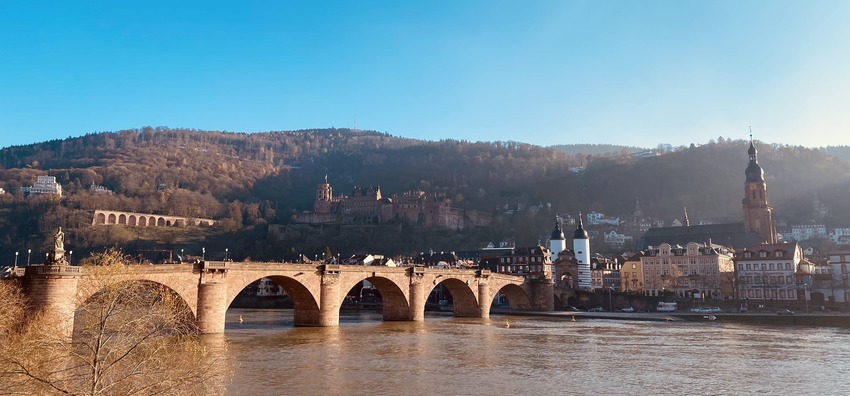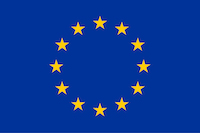
Ljubljana – Heidelberg: Cities of Literature and Delights of Intellectual Exchange
03 Jan 2024
0
“Tell me, what do Ljubljana and Heidelberg have in common?” the Heidelberg-based publisher and Indophile Christian Weiß quizzed me over lunch when we met for the first time to talk about Indian authors in translation and discuss literature that we both love.
“A castle and a river?” I ventured, having absolved the basic coordinates of a town similar in proportions to my native city, and which until my arrival I associated most strongly with the reputable South Asia Institute.
“They are both cities of literature,” said the man who started Draupadi Verlag two decades ago and is considered Germany’s publishing champion of Indian literature in German translation. He proceeded to explain how UNESCO is yet to ‘discover’ India (or vice versa), but that Lahore of Pakistan was recently designated as a City of Literature and is now part of Creative Cities Network. This was his invitation for me to come up with an idea for a future collaboration that would tie our two cities in a creative exchange and endeavour.

So much of academic life revolves around meeting people and sharing ideas, exchanging skills and expertise. When projects, such as the one that brought me to Heidelberg for a two-month research “retreat”, make it one of their priorities to facilitate staff exchange between different countries, they do so, knowing full well the enormous benefits to both individual researchers as well as the problematic at hand that international and cross-discipline collaborations can bring. These benefits, which derive not least from exposure to new research environments, I dare say, are rarely fully quantifiable.
My first weeks in Heidelberg were relatively quiet, or at least outwardly uneventful. It so happened that all the project participants were elsewhere and for the most part, I was going to be working alone at the Institute of Public Health. With the warm reception by Angela Haefner-Faller and by Fengyun Yu who showed me around the campus on my first day, it took no time to settle in. The 6th-floor office was filled with light, autumn colours radiating off the treetops below.
For the last five years or so my research has been revolving primarily around Catholic women missionaries, spurred by my interest in Slovenian nuns who had gone to India in the 20th century and spent the rest of their lives working in different parts of the subcontinent as nurses, teachers or, in one case, social activists (for the rights of tribal women). Combining archival research with oral histories, and trying to understand the motivations and the many endeavours these women religious dedicated their lives to, I got to learn about a number of different European female congregations and their histories. One stood out for me as particularly ‘modern’ in terms of their outlook and initiatives; they were the first congregation of Catholic women religious to combine religious vocation with professional medical training within the healing ministry of the Church, and their story is essentially one of women working for women and having to battle structures of patriarchy within and outside the Church to change the very terms of how Sisters could practice medicine. In the context of this project concerned with global health issues and population medicine, I began seeing parallels between the Medical Mission Sisters (MMS), to give their name, and the new medical paradigm that “aims to improve the aggregate and long-term population health by mobilizing available resources through various care responsibilities.” A brainchild of two women doctors—Agnes McLaren (1837–1913), today considered the society’s inspiration, and its actual founder, Anna Dengel (1892–1980)—The MMS were founded in 1925 in Washington, DC, with their first foreign mission in Rawalpindi in North India (now Pakistan). The Society started out with four members, while the congregation today comprises just over 400 Sisters of 23 nationalities, with a presence in fifteen countries across five continents. Being in Heidelberg has afforded me the opportunity to go and interview some of the Sisters working in Berlin, and I am looking forward to the presentation I will be giving in Barcelona in April/May 2024 on their understanding of global health issues and their respective initiatives. I can already foresee an interesting cross-disciplinary debate on the importance of shifting from a reactive model that treats ill individuals to a proactive one that focuses on the population's health (something the MMS championed from their very beginnings), the cross-cultural challenges of implementation, and the intricacies of putting economic value on, for example, ‘wellbeing’. How for example can one evaluate the impact of their services on individuals and societies at large?
Being in Heidelberg has afforded me another intellectual luxury of interdisciplinary cross-stimulation. With my long-standing interest in South Asia, I gravitated naturally towards the South Asian Institute (SAI) and with the generous guidance of its executive director Dr Kama McLean, whom I met in Kolkata many years ago while doing fieldwork in India, I had the opportunity to attend a number of fascinating talks, presentations, seminars, and even performances, starting with the superb Odissy dance performance by Dr Aneesh Raghavan on the day of my arrival on Sunday, October 15th. The next weekend too offered a rich programme of Indian films shown as part of the Film Festival at the Department of Political Science, curated by Dr Harsh Mander, whose scholarship and work on social justice and human rights in India I’ve long admired. The films, chosen to evoke empathy and complex thinking, left us reeling with questions. The launch of Mander’s latest book Burning Pyres, Mass Graves, and a State that Failed Its People: India’s Covid Tragedy, followed a week later. Another difficult topic, calling attention to, amongst other things, “the criminal neglect of public health in India, a situation made worse under the Narendra Modi government.” Practically every week brought another guest lecture, inadvertently bringing interesting ideas and topics into my intellectual orbit and expanding it in ways that are difficult to quantify. From the anthropological investigations of the Delhi Court and its terror cases, eloquently delivered by Dr Mayur Suresh to Dr Sahana Udupa’s riveting presentation on AI and the curbing of hate speech on social media, these lectures gave me an opportunity to engage with topics that are seemingly distant to my academic interest, but, as it is often the case, stimulate vital critical thinking in what was a friendly but academically rigorous environment. The meeting of Dr Sonia Amin, who is currently the New Bangabandhu Sheikh Mujibur Rahman Fellow, and having the chance to attend one of her seminars on the early feminist writer and activist Begum Rokeya Hossain, further gave me new ideas for the Hermit Crab book series which I founded and which I edit as a creative side project to my academic work. All in all, I have not felt this intellectually alive in a long time.
And finally, coming towards the last two weeks of my stay and leaning well into the pre-Xmas season, two project members came to Heidelberg – Dr Mihály Borsi and Dr Jan-Hinrich Meyer, both from IQS School of Management (Universitat Ramon Llull). Not only was I finally able to discuss my ideas related to the project itself – over many lunches, dinners and occasionally malt wine --, Prof. Borsi also gave a lecture-cum-seminar entitled »Aporophobia (rejection of the poor): empirical evidence«, generating a debate on an exciting new topic most of us had been unfamiliar with that extended well over the planned time slot. With many comments coming from the atendees (both online and in the room) his presentation was indeed a great success, spiced up by a continued conversation over a Sri Lankan curry with a number of researchers from the Institute of Global Health, whereby comparisons were being drawn from Europe, China to India, notions of poverty debated, and personal prejudices addressed.

I knew that leaving Heidelberg was not going to be easy because of having had this unique opportunity of tapping into a wide pool of diverse ideas and speaking across disciplines with a fantastic set of new people, but the prospect of Barcelona Secondment coming up in spring 2024 appeased what to me felt like an all-too-rapid conclusion of my time in this City of Literature, making me all the more grateful for all the richness of what has transpired.
TO BE CONTINUED . . .
Written by Dr Ana Jelnikar (ZRC SAZU), 3rd January 2024
